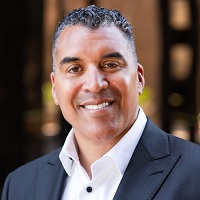What Would Accreditation Change Mean for Real Estate Investors?
Investors determined by a test to be ‘financially savvy’ would be allowed to invest in ways that they can’t now without having a certain level of assets.


Profit and prosper with the best of Kiplinger's advice on investing, taxes, retirement, personal finance and much more. Delivered daily. Enter your email in the box and click Sign Me Up.
You are now subscribed
Your newsletter sign-up was successful
Want to add more newsletters?

Delivered daily
Kiplinger Today
Profit and prosper with the best of Kiplinger's advice on investing, taxes, retirement, personal finance and much more delivered daily. Smart money moves start here.

Sent five days a week
Kiplinger A Step Ahead
Get practical help to make better financial decisions in your everyday life, from spending to savings on top deals.

Delivered daily
Kiplinger Closing Bell
Get today's biggest financial and investing headlines delivered to your inbox every day the U.S. stock market is open.

Sent twice a week
Kiplinger Adviser Intel
Financial pros across the country share best practices and fresh tactics to preserve and grow your wealth.

Delivered weekly
Kiplinger Tax Tips
Trim your federal and state tax bills with practical tax-planning and tax-cutting strategies.

Sent twice a week
Kiplinger Retirement Tips
Your twice-a-week guide to planning and enjoying a financially secure and richly rewarding retirement

Sent bimonthly.
Kiplinger Adviser Angle
Insights for advisers, wealth managers and other financial professionals.

Sent twice a week
Kiplinger Investing Weekly
Your twice-a-week roundup of promising stocks, funds, companies and industries you should consider, ones you should avoid, and why.

Sent weekly for six weeks
Kiplinger Invest for Retirement
Your step-by-step six-part series on how to invest for retirement, from devising a successful strategy to exactly which investments to choose.
Recent proposed congressional changes to investor accreditation laws promise to leave a long-term mark on the commercial real estate landscape.
Previously, only achievable by having a net income of over $1 million or more than $200,000 in annual net earned income during the last two years, the new proposal from the House of Representatives will allow investors to achieve accreditation status by passing a test that proves their “financial savvy.”
The test, which would be administered by FINRA, would be provided free of charge and would assess the individual's competency and knowledge of the private market. It would also address topics like various securities both public and private, corporate governance and risks associated with private assets, like limited liquidity and different disclosure rules.
From just $107.88 $24.99 for Kiplinger Personal Finance
Become a smarter, better informed investor. Subscribe from just $107.88 $24.99, plus get up to 4 Special Issues

Sign up for Kiplinger’s Free Newsletters
Profit and prosper with the best of expert advice on investing, taxes, retirement, personal finance and more - straight to your e-mail.
Profit and prosper with the best of expert advice - straight to your e-mail.
At the heart of these changes is the aim to democratize investment opportunities to the mainstream by lowering barriers to entry for individuals to invest their capital, thereby potentially altering the dynamics of real estate funding. But what are the realities behind these alterations? Ultimately, this should positively influence the securities space so long as new investors are prudent as they assess real estate offerings if they become more mainstream.
Expanding the investor pool
Currently, accredited investors are qualified with more than $200,000 in earned income per year individually, $300,000 per couple or $1 million in net worth. This approach primarily limits real estate investment opportunities to institutional investors or high-net-worth individuals.
With the relaxation of these criteria, a broader spectrum of investors would be eligible to participate in various real estate ventures, significantly expanding the capital pool available for developers and real estate companies and, in turn, providing investors with an additional source of diversification for their assets.
Boosting crowdfunding platforms
The rise of real estate crowdfunding platforms has been remarkable in the past decade. However, their growth was somewhat stifled by stringent accreditation laws. With eased regulations, these platforms could witness an influx of investors. This would not only provide more investment opportunities but also support smaller, innovative real estate projects that might have been overlooked by larger institutional investors.
More investors means more development in the long term, because it means more capital is making its way into the real estate industry. This would offer investors more project diversification and opportunities to participate in the real estate space.
Enhanced project diversification
With more investors in the mix, developers and real estate entrepreneurs will have the flexibility to explore a variety of projects. They won't be pigeonholed into catering exclusively to the whims and risk appetites of a select few. This means the market and investors may see a broader range of projects, from affordable housing and green buildings to tech-integrated commercial spaces.
For example, at 1031 Crowdfunding, we offer a diverse group of projects in spaces like senior housing, multifamily and medical facilities that provide investors with real estate stratification of investments.
The potential relaxation of investor accreditation laws represents a pivotal moment for the real estate industry. By democratizing access, enhancing the robustness of the investment environment and encouraging a broader range of projects, these changes would herald a new era for real estate development and investment.
As with all reforms, careful oversight and ongoing evaluation will be necessary, but the initial indicators point toward a promising future for the industry.
If you’re interested in learning more about this and other potential legislation affecting real estate securities, check out our website.
Related Content
- Invest Like the Rich: Are Direct Investments Right for You?
- How to Get into Alternative Investing
- Five Downsides of Investing in Alternatives
- How to Invest in Companies Before They Go Public
Profit and prosper with the best of Kiplinger's advice on investing, taxes, retirement, personal finance and much more. Delivered daily. Enter your email in the box and click Sign Me Up.

Edward Fernandez is President and Chief Executive Officer of 1031 Crowdfunding. With three-year revenue growth of 482%, 1031 Crowdfunding received ranking No. 1348 among America’s Fastest-Growing Private Companies on the Inc. 5000 list. Mr. Fernandez holds FINRA Series 6, 7, 24, and 63 licenses and is a Forbes Business Council Member. He has over 20 years of inside and outside sales experience and is personally involved in raising over $800 million of equity from individual and institutional investors through private and public real estate offerings. He is highly skilled in the simplification of highly complex real estate strategies and sophisticated investments and is regularly featured on Forbes, Inc., and the TD Ameritrade Network.
-
 How to Watch the 2026 Winter Olympics Without Overpaying
How to Watch the 2026 Winter Olympics Without OverpayingHere’s how to stream the 2026 Winter Olympics live, including low-cost viewing options, Peacock access and ways to catch your favorite athletes and events from anywhere.
-
 Here’s How to Stream the Super Bowl for Less
Here’s How to Stream the Super Bowl for LessWe'll show you the least expensive ways to stream football's biggest event.
-
 The Cost of Leaving Your Money in a Low-Rate Account
The Cost of Leaving Your Money in a Low-Rate AccountWhy parking your cash in low-yield accounts could be costing you, and smarter alternatives that preserve liquidity while boosting returns.
-
 How to Add a Pet Trust to Your Estate Plan: Don't Leave Your Best Friend to Chance
How to Add a Pet Trust to Your Estate Plan: Don't Leave Your Best Friend to ChanceAdding a pet trust to your estate plan can ensure your pets are properly looked after when you're no longer able to care for them. This is how to go about it.
-
 Want to Avoid Leaving Chaos in Your Wake? Don't Leave Behind an Outdated Estate Plan
Want to Avoid Leaving Chaos in Your Wake? Don't Leave Behind an Outdated Estate PlanAn outdated or incomplete estate plan could cause confusion for those handling your affairs at a difficult time. This guide highlights what to update and when.
-
 I'm a Financial Adviser: This Is Why I Became an Advocate for Fee-Only Financial Advice
I'm a Financial Adviser: This Is Why I Became an Advocate for Fee-Only Financial AdviceCan financial advisers who earn commissions on product sales give clients the best advice? For one professional, changing track was the clear choice.
-
 I Met With 100-Plus Advisers to Develop This Road Map for Adopting AI
I Met With 100-Plus Advisers to Develop This Road Map for Adopting AIFor financial advisers eager to embrace AI but unsure where to start, this road map will help you integrate the right tools and safeguards into your work.
-
 The Referral Revolution: How to Grow Your Business With Trust
The Referral Revolution: How to Grow Your Business With TrustYou can attract ideal clients by focusing on value and leveraging your current relationships to create a referral-based practice.
-
 This Is How You Can Land a Job You'll Love
This Is How You Can Land a Job You'll Love"Work How You Are Wired" leads job seekers on a journey of self-discovery that could help them snag the job of their dreams.
-
 65 or Older? Cut Your Tax Bill Before the Clock Runs Out
65 or Older? Cut Your Tax Bill Before the Clock Runs OutThanks to the OBBBA, you may be able to trim your tax bill by as much as $14,000. But you'll need to act soon, as not all of the provisions are permanent.
-
 The Key to a Successful Transition When Selling Your Business: Start the Process Sooner Than You Think You Need To
The Key to a Successful Transition When Selling Your Business: Start the Process Sooner Than You Think You Need ToWay before selling your business, you can align tax strategy, estate planning, family priorities and investment decisions to create flexibility.